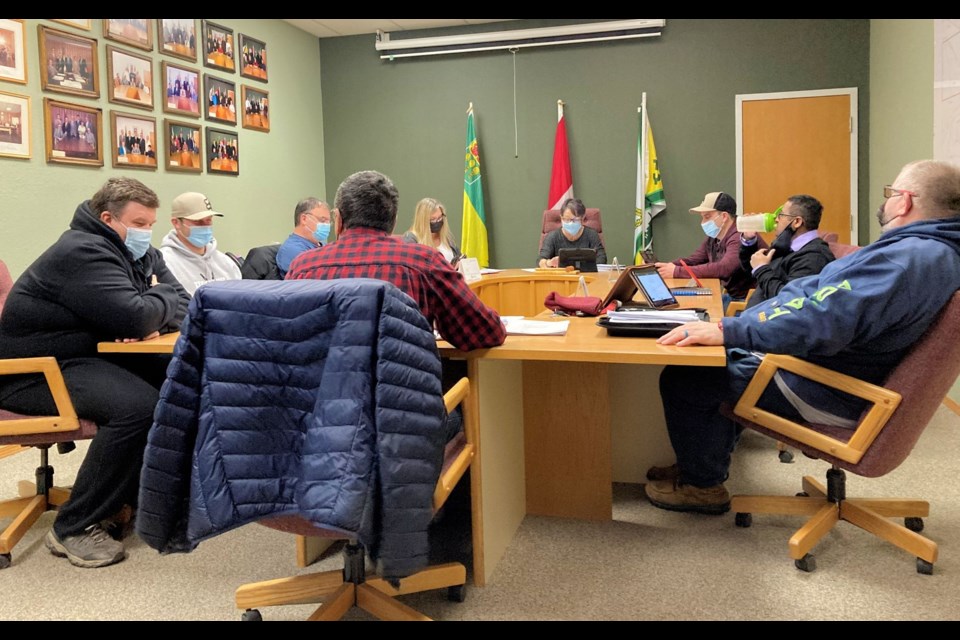UNITY — After a request from Brad Del Frari presented at the Feb. 8 Unity town council meeting that council pass an anti-discrimination bylaw, Unity CAO Aileen Garrett sought a legal opinion as to whether a municipality has the jurisdiction to pass such a bylaw. The written legal opinion was received and presented at the Feb. 22 council meeting.
Michael S. Solowan of Brownlee LLP summarized that “it is our opinion that council lacks jurisdiction to pass such a bylaw and should decline to do so and instead direct these concerned citizens to the Saskatchewan Human Rights Commission.”
To support the opinion, the following points were made: 1) the written request for the bylaw was not a valid petition under the Municipalities Act, which is the only way voters “can legally compel council to adopt a bylaw;” 2) even if council chose to act and adopt the bylaw, it “would not be a lawful exercise of council’s jurisdiction” as discrimination is already covered under provincial legislation which takes precedence, namely the Saskatchewan Human Rights Code, 2018; 3) even if council could and wanted to pass such a bylaw, the one presented was not in proper format and would have to be rewritten; 4) even if council could and wanted to pass such a bylaw, the reference to “‘choice’ as being a prohibited ground would likely be void for vagueness and unenforceable;” 5) even if council could pass such a bylaw, the proposed penalty of “‘banishment’ is not an appropriate or available remedy for non-compliance with a municipal bylaw.”
Lastly, Solowan addressed the issue of whether the request may have been in response to the pandemic and public health measures. He noted public health measures are in the process of being removed but also pointed out that, in any event, the Saskatchewan Human Rights Commission has issued public statements concerning the measures. Those statements are available on their website.
He concluded by saying that if Del Frari or any other concerned citizen felt that, for example, a business in Unity, was discriminating against them, the person(s) “should review the commission’s website to determine whether they may have experienced discrimination based on a protected ground and, if appropriate, they may choose to file a complaint. However, to the extent that their concerns may be in relation to COVID-19 public health measures it is important to note the commission’s conclusion that measures taken in accordance with directives and recommendations from Saskatchewan Public Health authorities are unlikely to violate the code.”
In light of this legal opinion, council will not be considering the requested anti-discrimination bylaw, nor discussing it further.
Another item on the Feb. 22 town council meeting agenda was how to respond to an email from Morice Miller regarding convoys. Discussion showed that the general consensus was to not take any action against such protests, especially with the expectation that they would decline in number and size as provincial public health orders are lifted.
It was also pointed out that, by applying for a parade permit – which previous convoys have not done – a convoy would have the right of way at intersections with stop and yield signs. Without a permit, traffic and other laws must still be followed. As RCMP officer Chris Neufeld, who was in attendance at the meeting, said, “A peaceful protest is absolutely acceptable, just have to follow the laws.”




